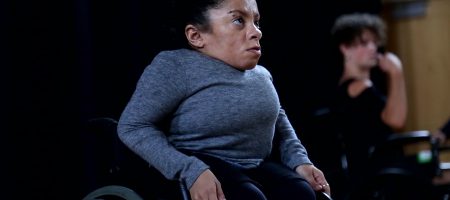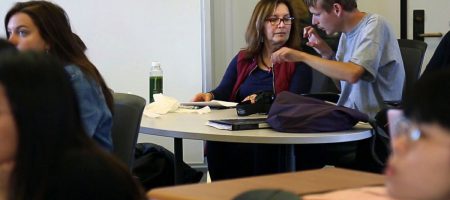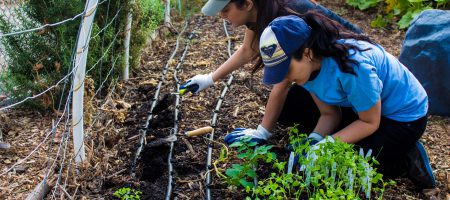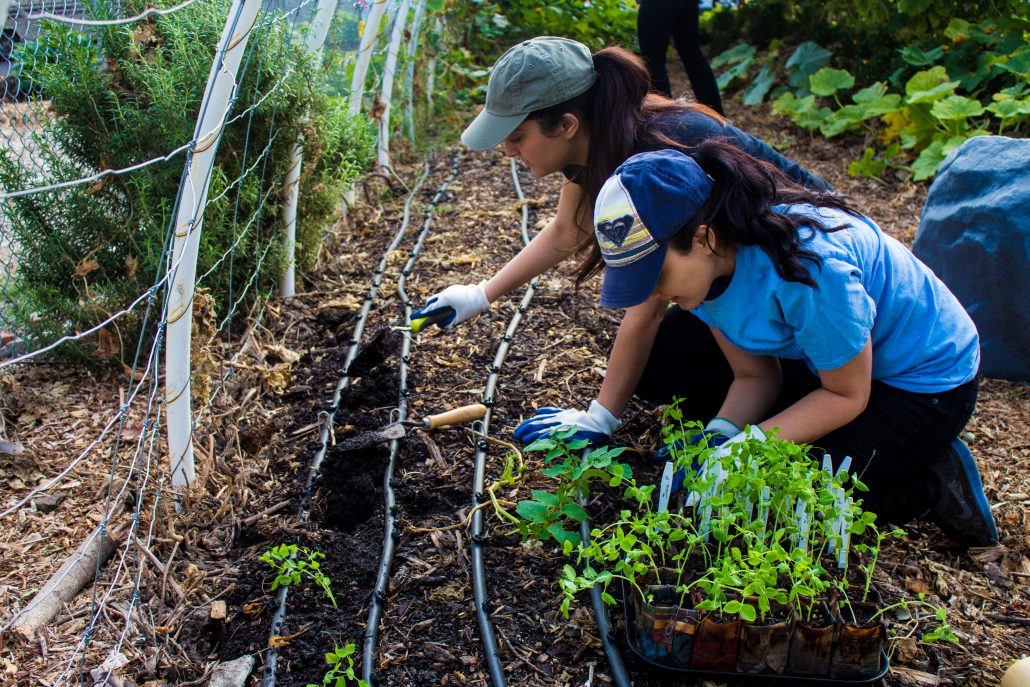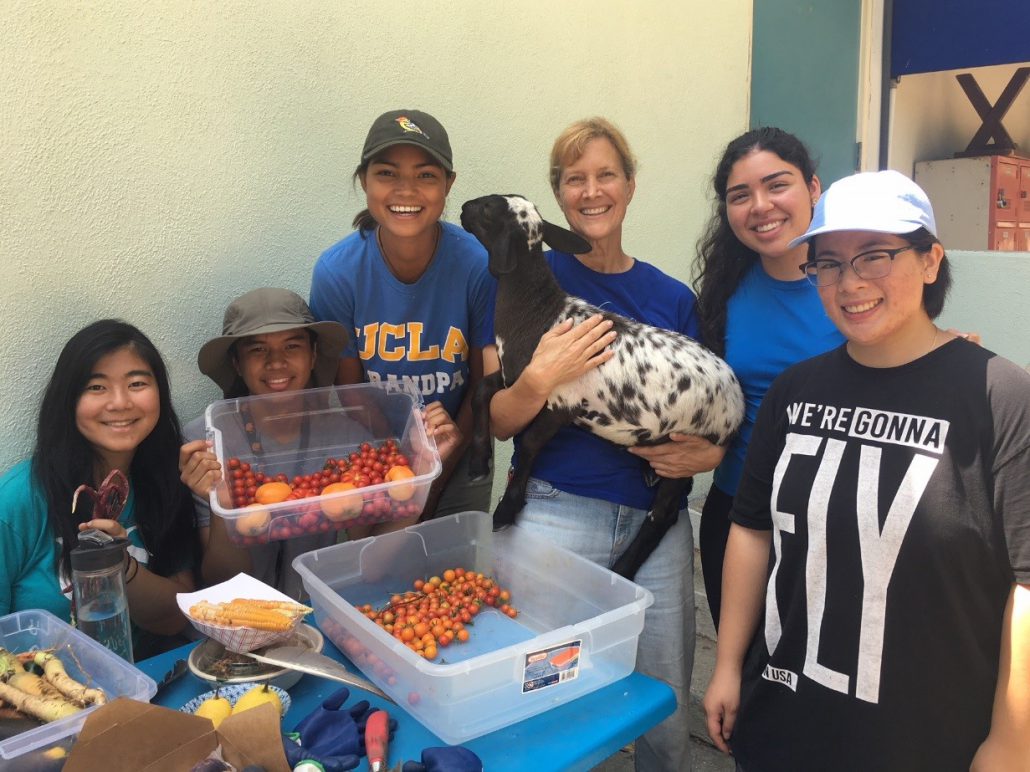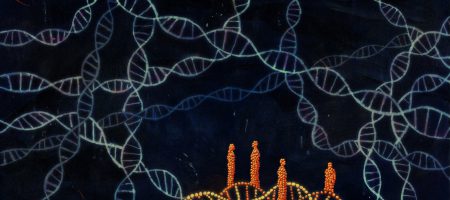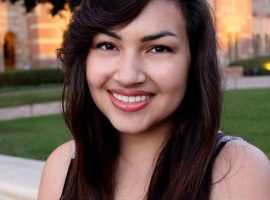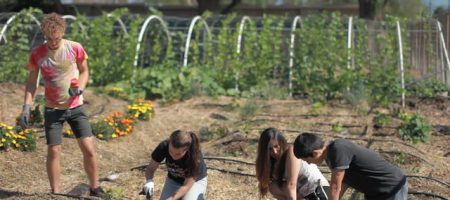UCLA students and alumni work together to tackle food justice
/in community learning FS Minor Minors news /by rayna jacksonSarina Morales is a self-proclaimed “city girl.” Born and raised in San Fernando Valley, Morales had never worked on a farm, planted her own food, or chased chickens. But all of that changed this summer.
For ten weeks, Morales along with fourteen other UCLA students learned about access and equity issues related to food in Los Angeles through the civic engagement and food studies course, “Food Studies and Food Justice in Los Angeles.”
The service learning course, which was sponsored in part by the UC Global Food Initiative and created by the UCLA Center for Community Learning, paired students with eight different community partners.
Morales, who is a junior, originally came to UCLA with dreams of becoming a doctor. She declared her major in human biology and society, and immediately began completing the required courses for medical school. She always loved the subject of food, but never knew it was something that could actually be studied at a university. So, when her department sent out an email about the class, Morales signed up.
“I was looking for something to do over the summer and the service learning component sounded very interesting,” Morales said. “Plus, the class was paid for by the Food Initiative, so that made it even better!”
Before Morales started working with the community partner Kindred Spirits Care Farm, she expected to do manual labor in the garden, like planting food. However, when she got there, she soon realized that in addition to gardening, she would be caring for goats, geese, pigs, chickens, rabbits and alpacas.
Karen Snook, who is the Kindred Spirits co-founder and executive director, taught Morales how to care for the various rescue animals and even how to corner, catch and clip the nails of a chicken.
“I was nervous, but Karen explained everything,” Morales said. “It’s crazy that that was the first time I had ever held a chicken!”
Dr. James Bassett, instructor with the UCLA Institute of the Environment and Sustainability, taught the course over the summer. For Bassett, the community engagement component is particularly important because students see the subject of food come to life.
“Several partner sites feature community gardens or other growing spaces where students learn how to grow some of their own food,” Bassett said. “These represent great opportunities for students because they explore issues of food and agriculture and literally get their hands dirty.”
At Kindred Spirits, UCLA students work in the animal rescue and sanctuary, permaculture garden or with students from John R. Wooden High School, a continuation high school for at-risk kids, where the farm is located.
Snook takes time with each UCLA student to connect everything back to topics such as social justice, food deserts, food insecurities, and agriculture.
“I want them to walk on the farm and experience the animals and plants,” Snook said. “I want them to work side by side with, and learn from people from the community.”
Snook, who received her B.S. in psychobiology with a specialization in computer science from UCLA, says that working with her alma mater and seeing a new generation of Bruins passionate about food justice gives her the energy to continue her work.
“What I do is hard,” said Snook. “There are plenty of days when I ask myself, ‘Am I making an impact?’ One thing I find incredibly refreshing about working with UCLA students is that they give me a sense that ‘Yes, I am doing is the right stuff and I do have an impact.’”
Bassett may work in the classroom with students, but he feels the same way as Snook.
“I was an undergraduate at UCLA,” said Bassett, who received his B.A. in psychology. “And this has given me another chance to give back. I am very grateful to have the opportunity to help connect students with our community partners and to the possibilities that lay in their future.”
Morales says that the time she spent in class with Bassett and working with Snook at the farm exceeded her expectations. She also credits her hands-on experience with for fueling her passion for food studies.
She recently switched her major to environmental science with a minor in food studies. Now, Morales looks to do advocacy work by starting grassroots food and health movements in local low-income communities.
“This class has showed me that I can go beyond UCLA to do this work,” Morales said. “I can be successful and change the world.”
A Minor Revolution: Food Studies and Entreprenuership
/in FS Minor news /by administrator(UCLA Magazine | October 1, 2017)
Disability Studies Celebrates 10 Years of ‘Re-defining Normal’
/in DS Minor news /by rayna jackson(UCLA College Magazine | Summer 2017)


